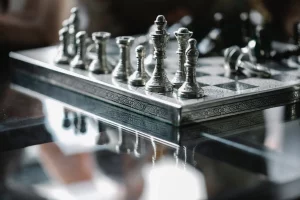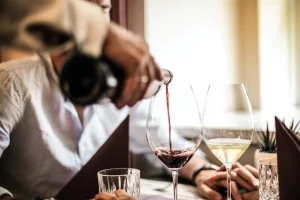Unlocking Your Inner Chef: A Beginner’s Guide to Cooking Delicious Meals


Unlocking Your Inner Chef: A Beginner’s Guide to Cooking Delicious Meals
Introduction
Cooking is not only a basic survival skill but also an art form that allows you to express your creativity and nourish both yourself and others. If you’re a beginner in the kitchen or want to enhance your culinary skills, this comprehensive guide will take you through the essential steps to become a confident and skilled chef. From mastering basic techniques to exploring diverse flavors, you’ll learn how to create mouthwatering dishes that will impress your friends and family. Let’s dive into the world of cooking and unlock your inner chef!
1. Getting Started: Essential Kitchen Tools and Equipment
Before you embark on your culinary journey, it’s important to have the right tools in your kitchen. Start by equipping yourself with essential kitchen utensils such as knives, cutting boards, pots, pans, and measuring tools. Invest in quality equipment that will stand the test of time and make your cooking experience more enjoyable.
2. Mastering Basic Cooking Techniques
Begin with mastering the fundamental cooking techniques that form the foundation of countless recipes. These techniques include chopping, sautéing, simmering, boiling, baking, and grilling. Practice each technique individually to build your skills and confidence in the kitchen. Understanding these basic techniques will enable you to tackle a wide range of recipes with ease.
3. Understanding Flavor Profiles and Seasonings
Flavors are the heart and soul of any dish. Familiarize yourself with different flavor profiles, such as sweet, sour, salty, bitter, and umami. Experiment with various herbs, spices, and seasonings to enhance the taste of your dishes. Start with simple combinations and gradually explore more complex flavors as you gain confidence in your palate.
4. Knife Skills: The Art of Cutting and Chopping
Knife skills are a fundamental aspect of cooking. Learn proper knife techniques, such as the julienne, dice, and chiffonade, to achieve consistent and professional-looking cuts. Practice knife safety and maintain sharp blades for efficient and safe food preparation. With time and practice, you’ll become more proficient in handling a knife like a pro.
5. Exploring Essential Cooking Methods
Expand your cooking repertoire by exploring different cooking methods. From braising and roasting to stir-frying and steaming, each method offers unique flavors and textures. Experiment with various ingredients and recipes to understand how different cooking methods can transform your dishes.
6. The Importance of Meal Planning and Preparation
Meal planning and preparation are key to successful and stress-free cooking. Plan your meals in advance, create a grocery list, and organize your ingredients and cooking utensils before you start cooking. This will save you time, minimize waste, and make the cooking process more efficient. Additionally, meal planning allows you to balance your diet and explore new recipes.
7. Embracing Mistakes and Learning from Experience
Just like in any creative endeavor, mistakes are an essential part of the learning process in cooking. Embrace them as opportunities for growth and improvement. If a dish doesn’t turn out as expected, analyze what went wrong, adjust the recipe, and try again. Learning from your mistakes will help you develop a better understanding of ingredients, techniques, and flavors.
8. Exploring Global Cuisines and Cultural Fusion
Expand your culinary horizons by exploring global cuisines. Discover the diverse flavors, ingredients, and cooking techniques of different cultures. Experiment with fusion recipes that combine elements from different cuisines to create exciting and unique dishes. Exploring global flavors will broaden your culinary knowledge and inspire your creativity in the kitchen.
Conclusion
With this beginner’s guide to cooking, you’re well on your way to becoming a skilled chef in your own kitchen. From mastering basic techniques to exploring flavors and cooking methods, each step will contribute to your growth as a culinary artist. Embrace the joy of cooking, experiment with ingredients, and don’t be afraid to unleash your creativity. With practice and a passion for good food, you’ll create delicious meals that will delight your taste buds and impress those around you.








